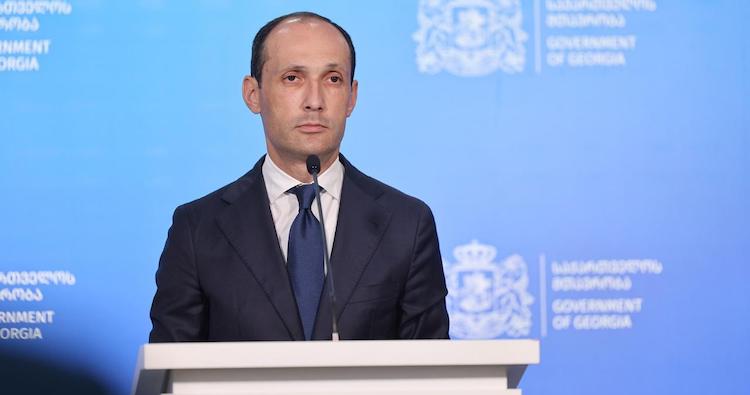Georgian Economy Minister: sanctions against Georgian officials “unacceptable”, “damaging to partnership”

Levan Davitashvili, the First Vice Prime Minister and Economy Minister of Georgia, on Monday said sanctions against Georgian officials were “unacceptable” and “damaging to partnership”. Photo: Ministry of Economy
Levan Davitashvili, the First Vice Prime Minister and Economy Minister of Georgia, on Monday said sanctions against Georgian officials were “unacceptable” and “damaging to partnership”, after the United States Government earlier this month imposed travel restrictions on a select group of officials from the country following adoption of a controversial law on transparency of foreign influence by the Georgian Parliament.
We have a complex dialogue with our partners that involves important cooperation in many areas. This gives us confidence that we will be able to find common ground on various issues. Sanctions are unacceptable to us and are damaging to our partnership. We believe we can resolve all issues through dialogue with our strategic partners and friends”, Davitashvili said.
Speaking at a Government Administration briefing, he noted members of “some opposition” parties were advocating for imposition of sanctions on “specific Georgian citizens” and expressed disappointment in the local media’s “support” of this stance.
Davitashvili acknowledged the “complexity” of the issue, particularly within the European Union, which he said incorporated “diverse political groups and priorities”. The Minister stressed the dialogue was a “long-term process” and expressed optimism in a solution being found given Georgia’s “track record as a reliable partner” of the bloc.
While acknowledging differences of opinion, Davitashvili highlighted the “positive cooperation and progress” between Georgia and the EU and said he hoped a “mutually beneficial resolution that avoids the need for sanctions” would be found.
The law requires registration of non-commercial legal entities and media outlets in the country as “pursuing the interests of a foreign power” if they derive more than 20 percent of their funding from abroad.
 Tweet
Tweet  Share
Share